Questions for an Autism Mama
 I thought I would do a series on answering some of the questions that people might want to ask but maybe not know how to ask an Autism parent like myself. My responses are simply that: My responses! I don’t speak for anyone else and know firsthand that many other parents of children on the spectrum feel very differently and some think the same. Having said that, here we go.
I thought I would do a series on answering some of the questions that people might want to ask but maybe not know how to ask an Autism parent like myself. My responses are simply that: My responses! I don’t speak for anyone else and know firsthand that many other parents of children on the spectrum feel very differently and some think the same. Having said that, here we go.
Q. What is Autism?
A. Autism is a very complex, very personal diagnosis that affects every person differently. There are traits that show up regularly — such as poor social interaction, lack of eye contact, delayed speech, and obsessive behaviour — but these are traits and not criteria for diagnosis. Every diagnosis is different. For instance, my daughter struggles to interact and communicate with the outside world; she lives in her own little bubble and on the whole is pretty content (until it all goes spectacularly wrong!). Other children don’t sleep, at all. Others self-harm, some appear to have nothing ‘wrong’ and only when they collapse in a public meltdown do people see what is going on inside (my son). To put it bluntly, people with autism are wired differently, not necessarily wrong. As long as you work out the ‘glitches’ you can live with it just fine.
Some use the “It’s like being a Mac in a PC world” analogy, which is good for us as I don’t understand Macs at all!
Q. What causes Autism?
A. The short answer is we don’t know. There are theories, hundreds of theories from the MMR shot to low birth weight, probably all the way down to women eating jam during pregnancy. You get the gist — most theories involve pointing fingers at parents. Like many people, I personally think that it’s genetic, as both of my children have degrees of autism and they have cousins on both sides of the family who also have it. They also have a dad with Bi-Polar Disorder, and that is connected quite closely to the spectrum.
Q. Would you want a cure?
A. This is a tough one for me. My children and their Autism are so delicately intertwined that I have no idea where one starts and the other stops. It is not like a tumour, which you can cut away and leave the original child intact (not that I’m comparing ASD to a deadly illness!). I would have no idea who they would be without their quirks, both good and bad. I think a cure sounds quite scary, in all honesty, as it kinds of hints at Hitler’s ethnic cleansing, getting rid of anyone who doesn’t conform. Autistic minds have been moving the world forward for years, creatively and technically. The world would be a worse place without them…however…people with autism have been found to die younger, due to associated health problems and, more scarily, high rates of suicide! The extreme end of autism includes co-morbid mental health diagnoses such as Bipolar, Psychosis, Eating Disorders and more. These can lead to violence towards themselves and others, and I can imagine the people struggling with all this and their parents wish for a cure every day.
It’s a tricky one, everyone is so different.
Q. Do some people use the “Autism” label to detract from bad parenting?
A. Probably, I can’t speak for anyone personally but I am sure there are people who would rather have their child diagnosed the Autism or ADHD than face up to their shortcomings as a parent. I should probably mention that getting a diagnosis for many people seems near impossible so anyone who actually starts on this route for the wrong reasons need a ‘check up’ themselves.
On the flip-side having a special needs child’s doesn’t mean you can slip into bad parenting techniques and it doesn’t mean that they can’t be naughty. Both of mine regularly do things they know they shouldn’t but the way I deal with them differs to suit their understanding. Autism is a diagnosis not an excuse.
Q. Do Autistic people have a “special gift?”
A. Generally no; being a savant is extremely rare. Autism can often present with a variety of learning disabilities as well as communication difficulties, so asking a parent of these children, “Ooh, are they good at Maths?” may not generate a particularly positive reaction. I personally have two children: one who has severe communication difficulties and is considered at the severe end of the spectrum. She learnt to read at age two by rote and learnt her times tables the same way (clever, yes; savant …p robably not.) I also have a child at the polar opposite end of the spectrum who can talk, interact and, on the whole, doesn’t appear “typically” autistic. He is struggling with the basics of phonics (which isn’t unusual for his age, but it’s clearly not savant).
Q. Will your child grow out of it?
A. No. Hopefully my daughter will grow with it, as will I as a parent and her advocate. If your child grows out of their Autism, I would argue as to whether they had Autism to start with.
Q. Would you be offended if I asked you these questions to your face?
A. No, I’d be offended if you whispered about me and my family to other people. I’ll also be less-than-appreciative if you start telling me about Autism because your ‘sister’s husband’s ex-uncle knew someone with ASD.’ Unless you live with my children day in and day out, you know nothing about their autism.
Some of this might sound harsh or bleak, but it’s not my intention. Knowledge is power, and in order to have real Autism Acceptance we need to be able to have honest conversations. Feel free to comment with any thoughts or questions of your own.



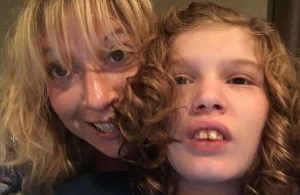 My dearest daughter,
My dearest daughter,
 Receiving a diagnosis of Autism Spectrum Condition for your child is life-changing. Even if you know, deep down, that there is something “not quite right: with your child, and that something is probably autism, actually hearing a qualified medical professional say the words can take the wind from your sails. For a second or two, the world stops turning. Everything moves in slow motion. The words reverberate around inside your head. Autism Spectrum Condition. Autism. Autistic. My child is autistic.
Receiving a diagnosis of Autism Spectrum Condition for your child is life-changing. Even if you know, deep down, that there is something “not quite right: with your child, and that something is probably autism, actually hearing a qualified medical professional say the words can take the wind from your sails. For a second or two, the world stops turning. Everything moves in slow motion. The words reverberate around inside your head. Autism Spectrum Condition. Autism. Autistic. My child is autistic.
 Two years ago, we were told my son (then age 5) likely had autism. It came out of the blue, and I found myself thrown into a world that I had little understanding of. Sitting in the doctor’s room, I had no idea of the journey it would take me on or what a personal impact it would have on me.
Two years ago, we were told my son (then age 5) likely had autism. It came out of the blue, and I found myself thrown into a world that I had little understanding of. Sitting in the doctor’s room, I had no idea of the journey it would take me on or what a personal impact it would have on me.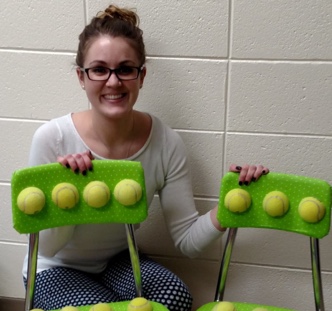

 I am a strong believer in Early Intervention for children diagnosed with autism and, in fact, any other condition that a child is diagnosed with that requires extra support.
I am a strong believer in Early Intervention for children diagnosed with autism and, in fact, any other condition that a child is diagnosed with that requires extra support.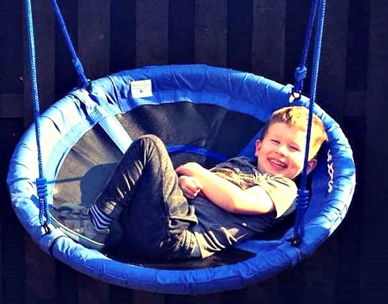
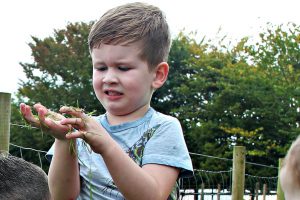 I never knew about sensory issues before having Brody. I wouldn’t have believed that a child could get so upset at the sight, touch, smell or sound of something — if that something wasn’t typically upsetting.
I never knew about sensory issues before having Brody. I wouldn’t have believed that a child could get so upset at the sight, touch, smell or sound of something — if that something wasn’t typically upsetting.
 This Sunday, the NFL’s Pro Bowl will take place in Orlando, Florida. As the location of Disney World, Universal Studios, SeaWorld, and more, Orlando is one of the most family-friendly destinations in the U.S. And it’s about to get a little friendlier.
This Sunday, the NFL’s Pro Bowl will take place in Orlando, Florida. As the location of Disney World, Universal Studios, SeaWorld, and more, Orlando is one of the most family-friendly destinations in the U.S. And it’s about to get a little friendlier.
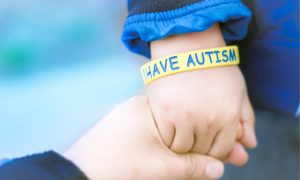 No one has a child hoping that they will have problems and difficulties in life – that would be absurd.
No one has a child hoping that they will have problems and difficulties in life – that would be absurd.
 I am a forgotten carer. I didn’t choose to be a carer and, if I am honest and I had a choice, it wasn’t on my list of dream jobs when I was younger. However, when you have a child or children with disabilities, you become a carer by default.
I am a forgotten carer. I didn’t choose to be a carer and, if I am honest and I had a choice, it wasn’t on my list of dream jobs when I was younger. However, when you have a child or children with disabilities, you become a carer by default.